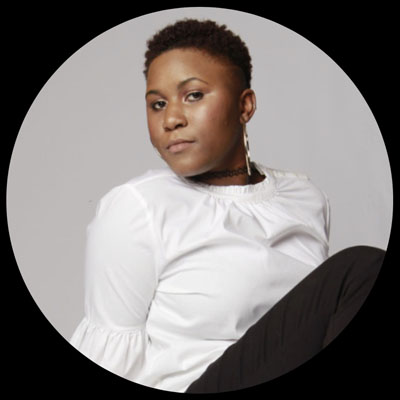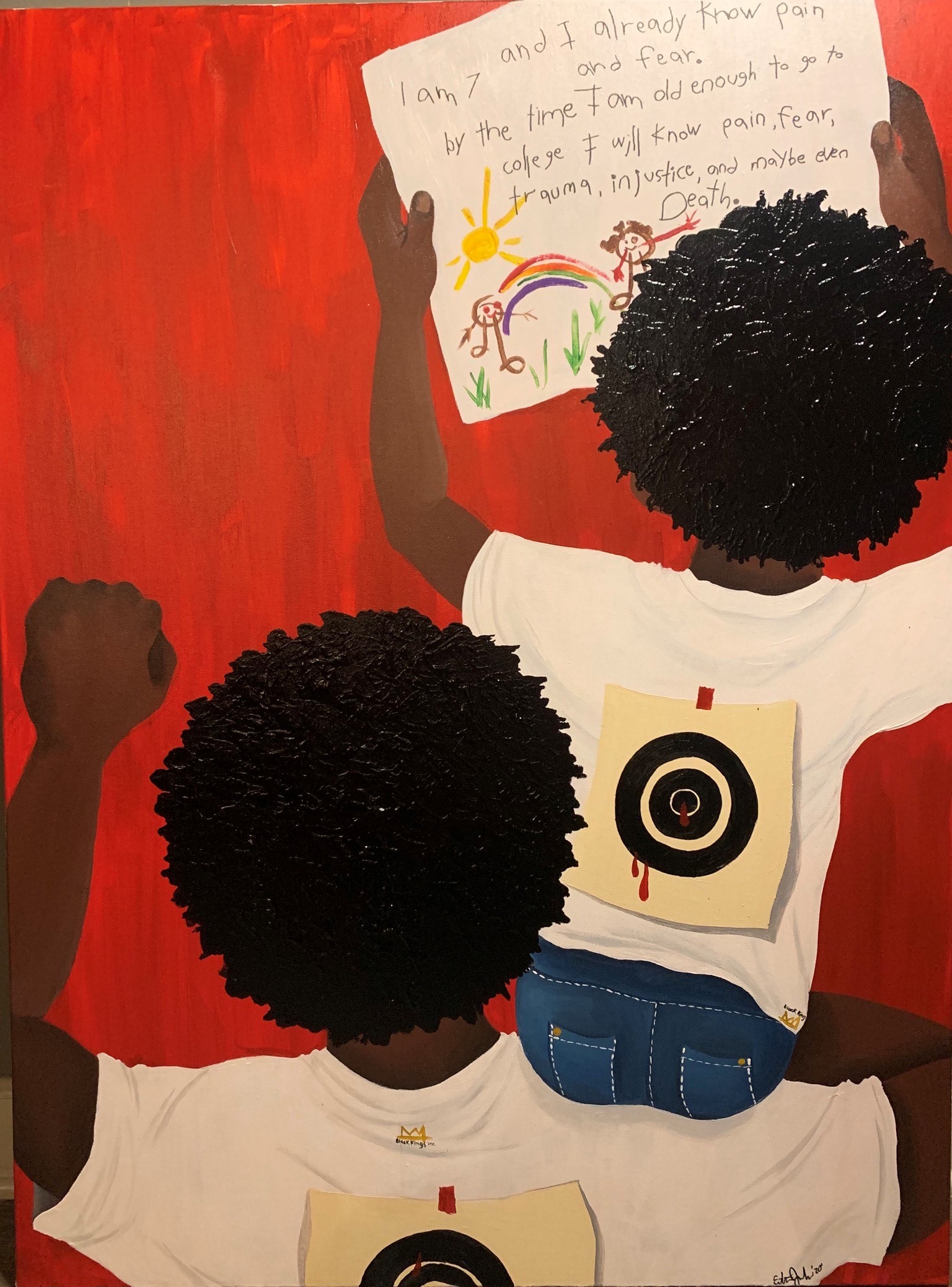In this Featured Member series, AATA celebrates the work of our members. During the coronavirus pandemic, we are inviting members to share their experiences about how their professional and personal lives have changed.
September 4, 2020
Tell us about yourself
 My name is Edith Juanah and I am currently an art therapy master’s candidate at Florida State University. As of this August I am beginning my second and last year as an art therapy student. I am from Dallas Texas where I graduated from Baylor University with my bachelors in studio art in 2018. After my graduation from undergraduate studies, I took a year off to reconnect to my community and explore education opportunities for a master’s degree in art therapy.
My name is Edith Juanah and I am currently an art therapy master’s candidate at Florida State University. As of this August I am beginning my second and last year as an art therapy student. I am from Dallas Texas where I graduated from Baylor University with my bachelors in studio art in 2018. After my graduation from undergraduate studies, I took a year off to reconnect to my community and explore education opportunities for a master’s degree in art therapy.
During that break I had an amazing opportunity to complete a year service as an AmeriCorps member in City Year. I was able to work in an under served community in Dallas, Texas and be an educational mentor for fifth grade students. I was connected with a variety of resources that helped me understand the issues and concerns of our educational system and the lack of mental health access that underserved communities had in Dallas. During that year I spent 1700 hours providing service to my community and becoming more aware of areas that I can help increase accessibility to mental health resources. I believe that my year of service provided me with the opportunity to grow personally and professionally as I developed skills in leadership, professional development, public speaking, and acting as a positive member of my community. During my time with City Year I also served on the diversity, equity, inclusion, and belonging committee (DEIB Committee) where I worked alongside 5 other members to plan community and organizational events that educated our fellow coworkers on the importance of diversity and equitable solutions for our community and organizations. This experience gave me a larger understanding of advocacy work and the importance of diversity and equity within my own community and future communities that I would come to be a part of, such as that of the art therapy community. Currently, I serve as the multicultural chair of FSU’s Student Art Therapy Association (SATA) club.
What has changed (or remained the same) in your studies during the COVID-19 pandemic?
Since the COVID-19 pandemic my studies at FSU have switched to remote learning. This means that for myself and my other cohort members, we currently spend hours at a time learning from our own homes and spending time connecting with each other through phone calls, Zoom, group messages, and/or FaceTime. It has been difficult to continue studies remotely as many of us, including myself, were prepared to attend classes in person. I have had to find ways to remain connected to my cohort and professors via alternative communication methods. As for my practicum experience, the pandemic halted all in person art therapy sessions with my clients. Because the university has remained adamant in their safety concerns for all students, as well as practicum sites being concerned for the safety of clients, my own practicum site for the spring of 2020 was closed which caused many changes for my studies.
In what ways have your clients been impacted by COVID-19? How are you managing your own stress related to their experiences?
With the COVID-19 pandemic, many of the clients I was seeing in the past spring semester were impacted. Because the practicum site I was at this past spring was a government facility, all visitors, including therapists and art therapists were, prevented from visiting the facility. My clients then had to receive therapy via alternative communication methods which included Skype and/or Zoom. Because of COVID-19, my practicum site had to adapt quickly and unexpectedly, and I was unable to continue care with the clients I had previously been seeing. This abrupt shift caused many concerns for myself, and I was faced with having to manage the stress and uncertainty of the times.
To manage my stress and anxiety with the current situation, I turn to the healing power of art. Throughout the past couple of months I have been creating and painting many art pieces which explore the fears, anxieties, and relationships that have been shifted due to COVID-19. As well as painting–I have used my time to explore new art mediums to be used as a container for my anxieties, stress and fears surrounding COVID-19.

“We are Born with Targets on our Backs” by Edith Juanah. Acrylic Paint. June 12, 2020.
Since the killing of George Floyd, the topic of race has once again been brought to the forefront of national dialogue. How have race related issues, social justice, and racism informed or impacted your work studies as an art therapy student?
Though the killing of George Floyd brought attention to the topic of race in national dialogue, for myself as a woman of color and a practicing art therapist of color, the killing of George Floyd did not bring new attention to race related issues. Rather the recent events and multitude of police brutality cases similar to that of George Floyd brought forth reminders of the constant struggle and trauma that the African-American community faces in the United States. The existence of race related issues is not new for myself or many people of color in the United States.
These same issues along with social justice and racism largely impacts my work as an art therapist and a student of color amongst a community of students who likely do not resemble myself. As a studying art therapist and student, my professional and research goals surround the topic of race, social justice, and racism. I am currently exploring the impact of art therapy on the effects of racial micro aggressions on African-American college students at FSU. My goal is to use a social justice approach to art therapy as a form of treatment for historical and cultural trauma carried through generations within the African-American community. As a black student at a primarily white college, the recent race related events and the killings of George Floyd, Breonna Taylor, Elijah McCain, Ahmaud Arbury, Botham Jean, Philando Castile and many more drive and motivate me to be an advocate for my community and my clients of color.
In what ways has your living or work space changed?
In recent events due to the COVID-19 pandemic my living or workspace has not been largely affected. I have had to adapt my living space to incorporate and make adjustments for remote learning such as, ensuring my Wi-Fi connection and alternative communication methods (laptops and phone) are readily available for Zoom classes and learning.
How do you view your role as an art therapy student during COVID-19?
I believe that my role as an art therapist during COVID-19 is to act as an advocate for my clients that may be struggling more so due to social isolation or loneliness. Due to the closure of my previous practicum site, I have been unable to work with clients who have been directly affected by COVID-19 or are dealing with mental health concerns. My hope is that as this next semester approaches I will be able to work with more clients and address COVID-19 concerns.
